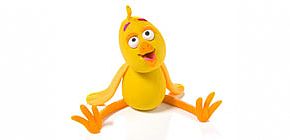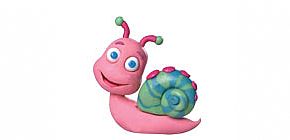Infant Mobility - Physical Activity in the First Months of Life
.jpg) |
|
The development of motor skills in infants is a continuous and unified process, mostly dependent on the maturation of the nervous system. Nevertheless, environmental factors also play a role in motor development, and stimuli, mainly from parents, can certainly promote its improved occurrence.
Physical activity for little ones
During the first weeks of their lives, your little ones move about reflexively and receive their daily dose of physical activity by engaging in basic day-to-day activities: breathing, sucking, swallowing, etc. All these require a heaping serving of effort.
Once the first few weeks of life have passed, and during the coming months, your little ones develop greater control over their bodies and engage in a more challenging “training regimen” that includes lifting their heads and holding them up, holding onto objects, kicking, attempting to roll over, move about and more. It is important to encourage them throughout and practice, so that the required physical skills can successfully develop. At the same time, it is important to do push them too far ahead and have them attempt skills before they are ready - such as sitting or standing. Every infant has their own developmental rhythm. Observe your infant and match activities to their strengths and weaknesses.
Exercises to develop and improve motor development
In addition to helping improve motor capabilities, physical activity in the first months of life can help forge a tighter bond between you and your little ones, while injecting a little added fun. Remember - this isn’t basic training! Activities should be gentle and measured, aimed at helping your infants get to know their bodies and their abilities.
Which activities can you engage in with them?
● Dance to the sound of pleasant music while holding, hugging, or wearing them in a carrier.
● Move their legs like a bicycle.
● Gently move their hands from side to side, then up and down.
● “Fly” them in the air, while making sure to support their hips well.
● Allow them to hold a ball or kick it while you hold them.
● Place objects that will attract their attention in different locations, to increase their area of mobility.
● Raise their legs towards their faces and let them hold their feet. Move them from side to side to practice balance.
● Lay them on their bellies and hold a toy in your hands. Slowly move the toy at eye level to develop their back and neck muscles.
It is just as important to allow your infants to move freely and naturally. Hold them less, take them out of the stroller or carrier and place them on a soft, comfortable surface that enables them to move according to their age and capabilities.
Development in the first months of life
The first months of life are characterized by a fast paced infant development process, across all aspects of daily life. During this period, the infant grows at an accelerated pace and their spinal cords, bones and other bodily systems develop as well.
It is important to encourage the infant to move about and pay attention to their rhythm of development. At the same time, try and avoid making comparisons and don’t stress if your infant is slower to develop than others. Still concerned? Unsure? Contact your pediatrician.
When we, as parents, search for the answer to the question of when it’s time to start introducing solids into our infants’ diets, we come across ...
Is it raining outside and the floor’s cold indoors? You can still encourage your little ones to develop and crawl. Read our tips here
When it progresses normally, it is a cause for joy and serenity. When it is delayed, it causes great concern and when it is early, it is a source of ...


.jpg)
.jpg)
.jpg)
.jpg)



.jpg)
.jpg)
.jpg)
.jpg)

.jpg)



.jpg)
.jpg)
Contact us